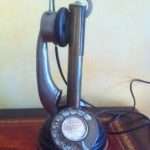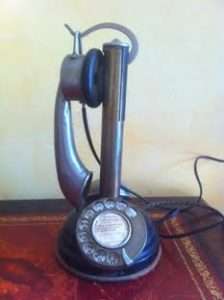Who pays?
Leinster were playing Edinburgh in Glasgow. The website said it was being covered by TG4, the Irish language channel. Turning on the laptop and opening the TG4 website, there appeared to be live coverage, except the preliminary coverage of the match was superseded by ladies Gaelic football. Going to the BBC Alba website there was match coverage, except it was only available to those living in the UK, attempts to persuade the BBC website I was not in France were unsuccessful. There was nothing else for it other than to turn on the television and scroll through the hundreds of channels. Finally, at Channel 3022, there was BBC Alba. The match was already 33 minutes old and Leinster were already 21-8 up, failing to resort to traditional technology as a first choice had meant missing three tries.
Internet technology has progressed at an extraordinary speed in the past decade. Our household has been online since February 1997, a dial-up connection at 4.5 kb per second. Extraordinarily, even though the speed was glacial, we organised a 1998 visit to British Columbia and Alberta via websites and email. It was 2004 before we had a broadband connection and telephone calls were not missed because email was being checked. Anyone under twenty years old must now find it hard to imagine days when the world was not immediately accessible.
If progress in Ireland has been rapid, progress in Africa has been even faster. Travelling to Rwanda and Burundi in 2009, just seven years ago, the mobile phone I carried did not seem to work with the local networks, even when using a local SIM card. The only telephone calls possible were made by my wife to the house of a friend in Bujumbura and to the mobile phone of a friend in Kigali. A year later, in 2010, and having switched to a Blackberry, there was still no connection possible. By 2011, the Wifi in Bujumbura was so good, that I could sit with my laptop in a hotel restaurant and follow online the results of the Irish presidential election. Last year, using an iPhone to make Whatsapp calls, I talked to family and friends in Ireland and England via the Wifi at a cafe in Addis Ababa airport and via a mobile modem at a guest house in Gitarama. The Rwandan internet signal was so good that my sister in Somerset assumed that I must be back in Ireland.
The only nagging question is, who pays for it all? Of course, there are broadband or mobile subscriptions to be paid, but all the sites and all the material they carry, what is the funding model? Is there a danger that one day someone will just announce that it has all been built on leprechaun gold and that most of it will just disappear?



They are getting cheaper because the TelCo’s and others like Facebook and Google are pitching satellites into geosync orbit like a golfer with issues, at a driving range. And Africa is the only region without historic baggage with widespread historic phone infrastructure queering the pitch like in Ireland and the UK. They are also able to deploy the bandwidth to broadband we used for terrestrial TV. Remember Saorview. And that foostering about in the attic trying to find Mt Leinster with the new antenna blind.
You know you can get expat virtual web addresses. Not exactly kosher, to mix a few, but they worked when I missed something.
Indeed, copper wire was a serious problem in many parts of Africa – it was constantly being stolen (as has also happened twice in the area covered by my parishes in the six years I have been there; half a mile of cable one night!)
I have tried using the Tor browser to access the BBC, stipulating exit nodes that suggest I am in the UK, but while it fools Google, it does not work on the BBC iPlayer (I suspect it is really a tool for geeks)